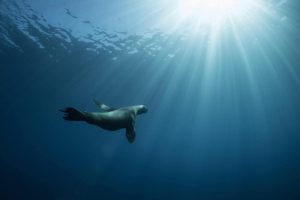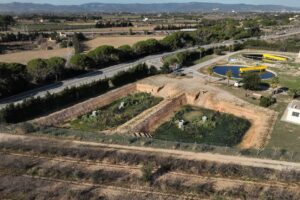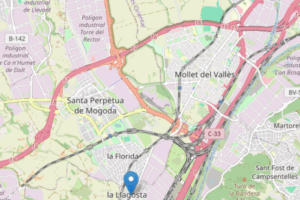
A collaborative network to promote the Tunisian textile sector
March 1, 2021
Identified a molecular mechanism that causes a severe heart arythmia type
March 9, 202125/02/2021
The Laboratory of Applied Bio-Acoustics (LAB) is participating in the SATURN European project to develop innovative solutions that mitigate the negative effects of underwater noise on the ecosystem and to advance towards a cleaner, quieter maritime sector.
Given global concerns about the health of the oceans, the technical focus of SATURN is to develop engineering solutions to reduce and mitigate radiated noise from shipping at the frequencies that are most harmful to marine fauna. This new perspective is considered a major step forward in the European shipping sector to protect the marine environment, as new technologies will be assessed and new regulations promoted to respond to social and ecosystem needs and thus progress in the protection of oceans.

The consortium will work to discover physical mechanisms involved in the generation and emission of underwater noise; develop methods to determine the acoustic signature of boats economically; and assess the behaviour of marine mammals, fish and invertebrates in response to noises of different intensities and frequencies. Likewise, real practical cases will be studied to assess the efficacy of technical and operational solutions to reduce the noise pollution of oceans, through intelligent regional noise management regulations.
SATURN has the participation of professionals in acoustic engineering, marine biology, naval engineering and ship classification societies (bodies that promote shipping safety), who will work together with an international group to tackle the negative impacts of ocean noise on marine species.
The project is funded by the Horizon 2020 European programme, with an allocation of 8.9 million euros and is coordinated by the Centre for Energy, Climate and Marine Research and Innovation (MaREI) of the University of Cork, Ireland. A total of 18 institutions are participating from 10 European countries, including research centres, government agencies and companies: LAB, the universities of Aarhus (Denmark), Leiden (the Netherlands) and La Laguna (Spain), the UK government agency CEFAS, the Maritime Research Institute Netherlands (MARIN), the Netherlands Organisation for Applied Scientific Research (TNO), the Institute for Terrestrial and Aquatic Wildlife Research (TIHO), the Italian National Research Council (CNR), the Consortium for the Design, Construction, Equipment and Operation of the Oceanic Platform of the Canary Islands (PLOCAN), the Italian Ship Research Centre (CETENA), the organisation JASCO and the societies and companies Bureau Veritas, DNV GL, Naval Group, Quiet Oceans, Tècniques i Serveis d'Enginyeria SL (TSI), Wärtsilä and Sirehna.
Technology
You want to know more?
Related Projects
- A research team from the UPC, in collaboration with the company B. Braun Surgical, has created a ceramic and biocompatible catalyst that captures greenhouse gases and transforms them into useful chemical products in a more sustainable way and at a lower cost than current technologies. The technology has successfully passed the pilot phase through joint projects with companies from different sectors.
- The company Trace ID and the group Twin Investors, in collaboration with the Textile Technology research group (TECTEX), which is part of the Institute of Textile Research and Industrial Cooperation of Terrassa (INTEXTER) at the Universitat Politècnica de Catalunya - BarcelonaTech (UPC), are developing electronic devices to identify, monitor, and study the traceability of the products in which they are embedded.
- The Hydrogeology Group (GHS) at the Universitat Politècnica de Catalunya - BarcelonaTech (UPC) is participating in the LIFE REMAR project to develop an innovative and sustainable solution for the reuse of treated wastewater through infiltration, with the aim of increasing the availability of freshwater resources and improving the state of ecosystems.
- A team from the Environment Centre Laboratory (LCMA) of the Universitat Politècnica de Catalunya - BarcelonaTech (UPC) is taking part in a study commissioned by the city councils of la Llagosta, Mollet and Santa Perpètua (in Vallès Occidental), with the main objective of identifying the impact of industrial plants on the generation of unpleasant odours and continuously monitoring air quality in these municipalities.




